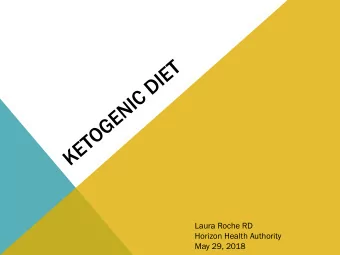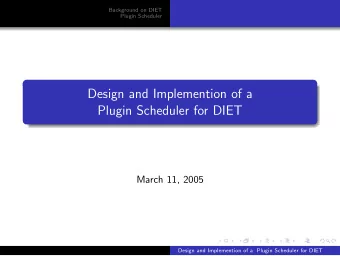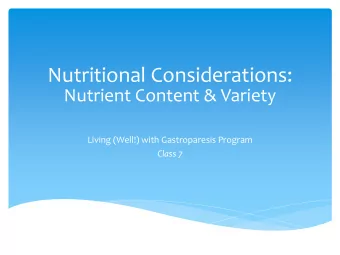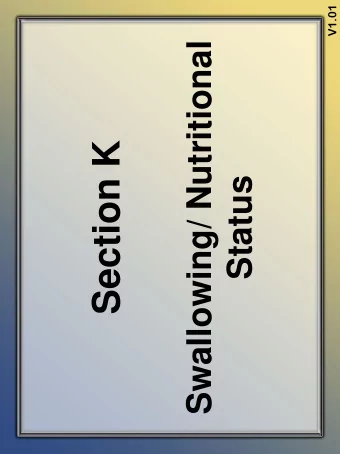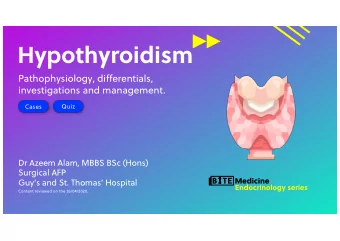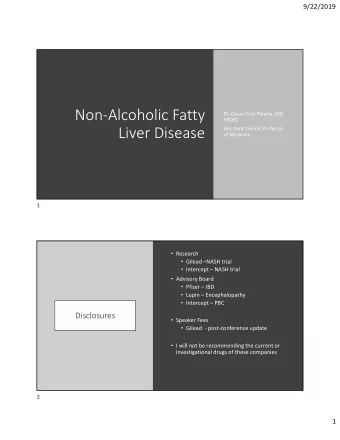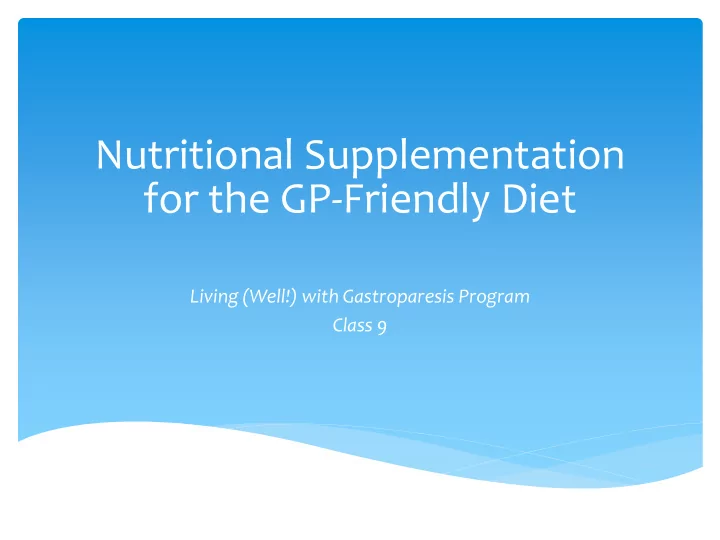
Nutritional Supplementation for the GP-Friendly Diet Living (Well!) - PowerPoint PPT Presentation
Nutritional Supplementation for the GP-Friendly Diet Living (Well!) with Gastroparesis Program Class 9 What are vitamins & minerals? Essential to human health; each vitamin/mineral has a specific function within the body Vitamins
Nutritional Supplementation for the GP-Friendly Diet Living (Well!) with Gastroparesis Program Class 9
What are vitamins & minerals? Essential to human health; each vitamin/mineral has a specific function within the body Vitamins (organic; made by plants and animals) 9 water-soluble: all Bs and C Not stored in body; excess is excreted 4 fat-soluble: A, D, E and K Fat is necessary for absorption; stored in body Minerals (inorganic; absorbed by plants/eaten by animals) Calcium, phosphorus, magnesium, potassium, sodium, chloride, sulfur Trace minerals: chromium, copper, iodine, iron, selenium, zinc
Why supplement? Poor dietary intake Typical GP-friendly diet does not provide all of the necessary vitamins and minerals due to limited volume and decreased consumption of nutrient- dense foods (fruits, veggies, fats) Food, in general, often contains fewer nutrients than in the past due to soil depletion, long distance travel, and time spent on store shelves Poor absorption Due to bacterial overgrowth, Celiac disease, non-Celiac gluten sensitivity, or leaky gut Due to medications, such as H2 blockers and PPIs Chronic stress Increases body’s need for A, C, E and B vitamins, as well as magnesium, potassium, zinc and calcium Get levels checked every 6-12 months via blood tests
Signs of Nutritional Deficiencies Many symptoms that are often attributed to worsening gastroparesis or other conditions can actually be a result of vitamin/mineral deficiencies Vitamin B1: lack of appetite; confusion Vitamin B7: hair loss Vitamin B12: numbness in fingers/toes; memory problems Vitamin E: weakened immune system; fertility problems Iron: fatigue; irritability Magnesium: muscle spasm or weakness; Restless Leg Syndrome; constipation Zinc: slow healing; diarrhea Fatty Acids (deficiency in Omega 3 or imbalance of Omega 3/6): dry skin; mood swings; reproductive problems
Supplementation Suggestions Multi Vitamin/Mineral Supplement chewable or liquid Vitamin D 1,000-2,000 IU per day (or more depending on blood test) liquid or chewable Magnesium 250-1,000 mg per day tablet, liquid, powder, or transdermal (oil, lotion, baths) Vitamin B Complex sublingual or injection Omega-3 2,000 grams per day; combo of DHA and EPA liquid Iron* (only if test indicates deficiency) See Supplementation Handout
Action Steps 1. Review the Vitamin/Mineral charts . Look for deficiency symptoms that you may be experiencing. 2. If you have concerns about specific deficiencies, talk with your doctor. You may wish to request blood work at this time. 3. Start slowly incorporating necessary vitamin/mineral supplements into your routine, one at a time (see handout). 4. Continue keeping your food journal with daily symptom score.
Class 9 Notes: ____________________________________________________________ ____________________________________________________________ ____________________________________________________________ ____________________________________________________________ ____________________________________________________________ ____________________________________________________________ ____________________________________________________________ ____________________________________________________________ ____________________________________________________________ ____________________________________________________________ ____________________________________________________________ Questions for Office Hours: ____________________________________________________________ ____________________________________________________________ ____________________________________________________________
Recommend
More recommend
Explore More Topics
Stay informed with curated content and fresh updates.




